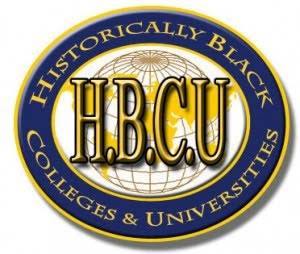
Dear Commons Community,
The New York Times has a featured article this morning entitled, Historically Black Colleges Finally Get the Spotlight, that examines recent developments at H.B.C.U.s and lauding star hirings and substantial new donations. However, it also notes that not all of these institutions are “sharing in the bounty, and some are still struggling to survive.” Here is an excerpt.
“Historically Black colleges and universities are having a moment, one that many educators say is more than a century overdue.
It may have started with the new vice president, Kamala Harris, who has celebrated her roots at Howard University, calling it “a place that shaped her.” Howard, in Washington, also recently announced a string of high-profile hirings, including the writers Ta-Nehisi Coates and Nikole Hannah-Jones and the actor Phylicia Rashad, who was appointed dean of the fine arts program.
Athletic programs are landing top recruits, and making big-name hires. Bethune-Cookman University in Daytona Beach, Fla., recently announced that Reggie Theus, the former Chicago Bulls guard, has become its athletic director.
And money is pouring in. The philanthropist MacKenzie Scott has given more than $500 million to more than 20 historically Black colleges in the past year. Google, TikTok and Reed Hastings, the co-chief executive of Netflix, have given $180 million more. Lawmakers on Capitol Hill delivered more than $5 billion in pandemic rescue funding, which included erasing $1.6 billion in debt for 45 institutions.
The donations, hirings and government money seem to signal a belated epiphany, a sudden recognition of the importance of the nation’s 100 historically Black colleges, which have educated Black Americans when other institutions openly, or subtly, would not.
“We’ve been here since 1865,” said George T. French Jr., president of Clark Atlanta University. But it is only now, he said, that he can reel off the names of donors who have contacted him.
He often asks donors, “Why am I just getting a call from you right now?”
Their answer, he said: “‘We were disturbed by what happened with George Floyd and other atrocities. And we want to do our part — to say we’re sorry.’”
But for some historically Black colleges, the future remains worrisome. Although the better-known institutions — including Howard, Morehouse and Spelman — are not in danger, other colleges, many of them small and rural, have been hit by declining enrollments and budgets. At least six have closed in the past 20 years and by several metrics, more than a handful of Black colleges are regarded as endangered.
The issues are partly demographic: There are fewer high school graduates, and Black students have been lured to other institutions with larger endowments and financial aid budgets. Even before the pandemic, enrollment at historically Black institutions had dropped to its lowest point since 2001, a rate of decline recently estimated at 1.4 percent a year, according to the National Student Clearinghouse.
John S. Wilson Jr., who has served as the president of Morehouse College and as a White House adviser on historically Black colleges, said that the institutions, known collectively as H.B.C.U.s, must seize this moment.
“Is this a sustainable moment that constitutes a new era?” said Dr. Wilson, whose forthcoming book, “Up From Uncertainty,” focuses on the future of historically Black colleges. “I think that answer could be ‘yes’ for a lot of H.B.C.U.s. Unfortunately, I think it’s also going to be ‘no’ to some institutions.”
The entire article reviews well the plight and future of these institutions. A good read!
Tony


